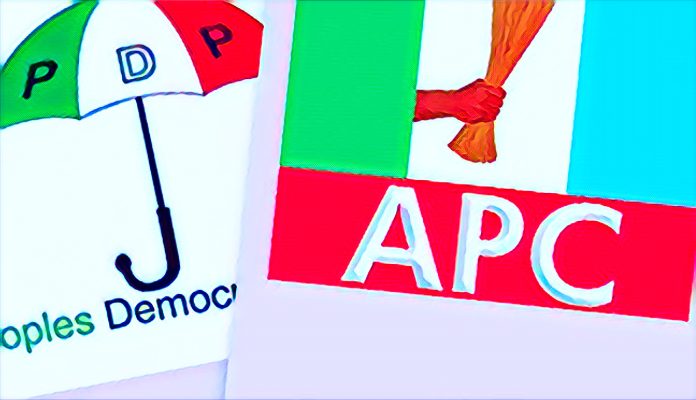KEY POINTS
-
Six Delta State PDP representatives defected to the APC, while two LP lawmakers joined the PDP, highlighting ongoing political realignments ahead of Nigeria’s 2027 elections.
-
Analysts link the defections to internal opposition strife and the APC’s strategy to weaken PDP dominance in the South-South region, a traditional opposition stronghold.
-
The moves bolster the APC’s legislative majority, coinciding with President Tinubu’s push to advance his administration’s agenda, including a N1.78 trillion FCT budget proposal.
In a significant political reshuffling ahead of the 2027 general elections, six members of the House of Representatives from Delta State have defected from the opposition Peoples Democratic Party, PDP, to the ruling All Progressives Congress, APC.
In a separate move, two Labour Party (LP) lawmakers from Enugu State crossed over to the PDP.
The mass defections were formally announced during a plenary session on Tuesday, May 6, 2025, by House Speaker Tajudeen Abbas, who read the letters of defection submitted by the lawmakers.
The six defecting PDP lawmakers from Delta include Victor Nwokolo (Ika North East/Ika South), Julius Pondi (Burutu), Thomas Ereyitomi (Warri North/Warri South/Warri West), Nicholas Mutu (Bomadi/Patani), Ukodhiko Jonathan (Isoko North/Isoko South), and Ezechi Nnamdi (Ndokwa/Ukwuani).
Rising internal tensions and strategic realignments spark mass movement across party lines
While the defectors did not immediately state their reasons in plenary, political analysts suggest that growing discontent within the PDP in Delta State, along with strategic alignment with the federal government, may have influenced their decisions.
There have also been ongoing speculations about internal factionalism and a lack of cohesion in the state chapter of the PDP, which some lawmakers have privately blamed for stifling development initiatives and frustrating constituency-level progress.
“There’s been rising frustration among lawmakers who feel that their political futures would be better secured under the ruling APC,” said Abuja-based political analyst Haruna Momoh. “This is not just about party loyalty but about influence, funding, and long-term survival.”
Meanwhile, in Enugu State, two Labour Party representatives—Obetta Chidi (Nsukka/Igbo-Eze South) and Dennis Agbo (Igbo-Eze North/Udenu)—have officially joined the PDP. This move is seen as a blow to the Labour Party, which surged in popularity during the 2023 elections, particularly among young and first-time voters backing its presidential candidate, Peter Obi.
The PDP, which has historically dominated Enugu politics, appears to be regaining lost ground through strategic reabsorption of defectors and renegotiation of loyalties in key constituencies.
Observers note that these defections reflect broader shifts in Nigeria’s political climate, where allegiance often follows access to state resources and proximity to power.
AAN TV reports that with the APC controlling the presidency and a majority in the National Assembly, many lawmakers are reportedly repositioning themselves for relevance ahead of mid-term political calculations and the next election cycle.
Although party switching has become a regular feature of Nigerian politics, critics argue that it undermines democratic accountability and weakens ideological commitment. Civil society organizations have renewed calls for electoral reforms that would discourage cross-carpeting and enforce party loyalty.
“Our democracy suffers when elected officials treat political parties like disposable vehicles,” said Uchenna Nwafor, a governance advocate with the Centre for Democratic Integrity. “Defections should be based on principle, not convenience.”
With 2027 looming on the horizon, more realignments are expected, especially in states where internal party democracy is perceived to be under threat or poorly managed. The APC, now bolstered by the additions from Delta, is expected to leverage this momentum in consolidating its influence across the oil-rich Niger Delta region, traditionally a PDP stronghold.



